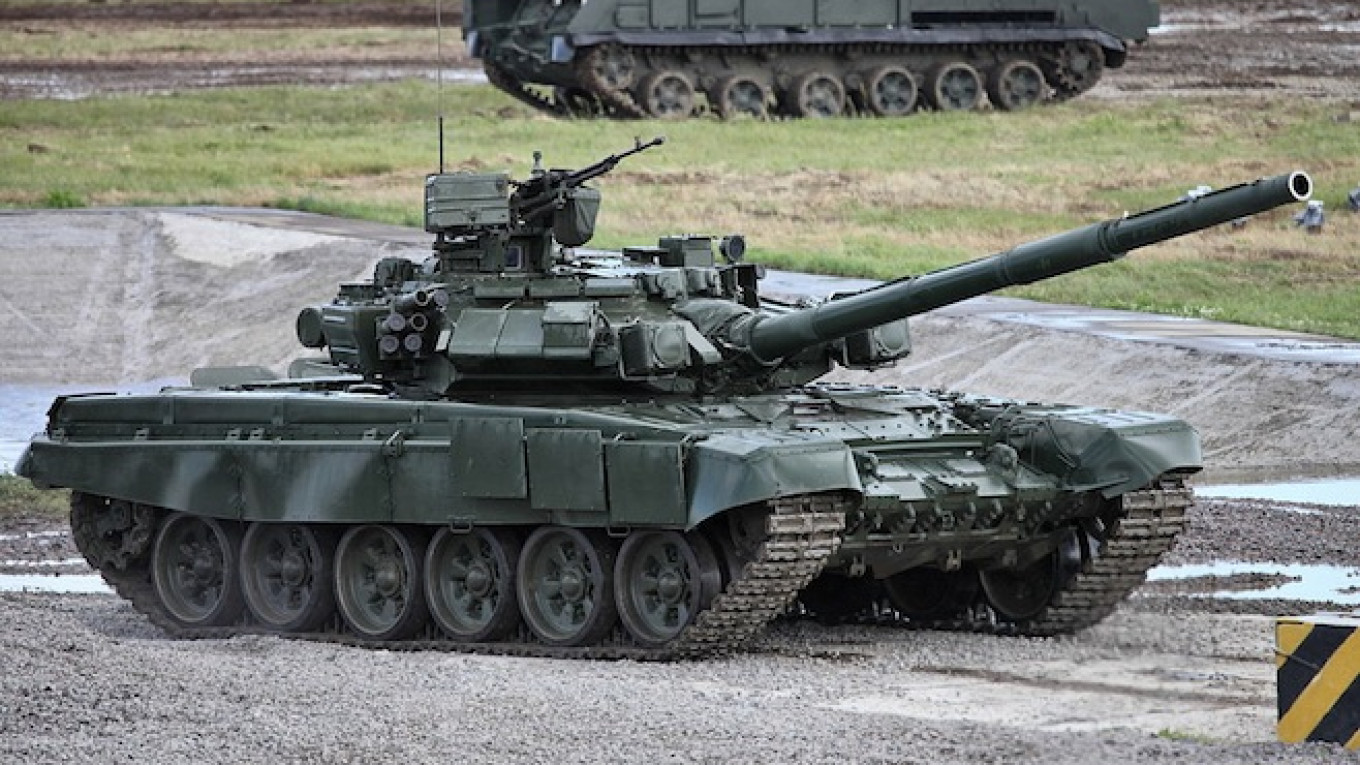Russia's major defense industry enterprises shrugged off Western sanctions and a Russian economic slowdown to grow their revenues rapidly in 2014, according to a new global ranking.
The Defense News Top 100 ranking is published annually and ranks the world's top arms makers by revenue. Russian firms bucked a global downward trend in defense revenues thanks to an expansion of military spending by the Russian government and increasing defense exports, which reached new highs in 2014.
The top 10 defense companies in the world were all major Western firms such as aerospace firm Lockheed Martin, maker of the new U.S. F-35 multi-role strike fighter, which reported defense revenues of over $40 billion, and Boeing — another U.S. aerospace company — with defense revenues of almost $30 billion.
But most of the Western companies saw declining revenues, as the U.S. and its NATO allies trim defense procurements. Russian firms meanwhile saw mostly double-digit revenue growth as President Vladimir Putin's 20 trillion ruble ($330 billion) military modernization drive filled order books and Russian exports reached a record-setting $13.2 billion of hardware in 2014, according to arms export agency Rosoboronexport.
The Russian government bought defense equipment worth almost 2 trillion rubles ($33.2 billion) in 2014, Prime Minister Dmitry Medvedev said in April.
Procurement spending is expected to increase annually until the rearmament program is completed in 2020 — meaning that Russian defense firms should expect to continue increasing their revenues for the remainder of the decade.
How much they will rise is hard to predict. Although government expenditures are expanding, arms exports are expected to plateau as soon as next year, analysts told The Moscow Times earlier this year.
Western sanctions imposed on Russian defense firms in the wake of the downing of passenger airliner MH17 over Ukraine last summer do not appear to have had a negative impact on defense industry revenues.
The harshest measure, an EU embargo on Russia's defense sector, did not have a significant impact on export revenues, since the majority of Russian arms exports go to non-Western nations such as China, India, Algeria and Venezuela.
Financial sanctions curbed the access of Russian defense industry firms to Western capital markets, while other measures ended their ability to import advanced components and electronics from Europe. But the Russian government is pushing the defense industry to establish production of domestic alternatives, which may serve to further boost revenues for component manufacturers such as RTI and United Engine-Building Corporation, among others.
Rankings Breakdown
The 2015 Defense News Top 100 list featured seven Russian firms, all of which saw revenues rise in 2014.
Russia's highest ranked defense firm was Almaz-Antey, maker of air defense systems such as the now-infamous Buk missile systems that were allegedly used to shoot down Malaysia Airlines flight MH17 last year.
Almaz-Antey ranked 11th in this year's ranking, rising one position from a year earlier. The firm reported a 10.6 percent rise in revenue over 2013 to $9.2 billion in 2014.
The largest revenue jump for a Russian defense company was reported by Tactical Missiles Corporation, which makes air-to-air missiles for aircraft. The company's revenue from defense sales rose 48.6 percent to $2.8 billion in 2014. It ranked 31st on the list.
Russia's second-largest defense company, United Aircraft Corporation, which controls fighter jet manufacturers Sukhoi, MiG and Irkut, was ranked 14th on this year's ranking, posting revenues from defense sales of $6.24 billion, a 7 percent increase from 2013.
Russian Helicopters, a holding company that encompasses most of Russia's military and civilian helicopter producers, rose two positions in the ranking to 23rd, reporting defense revenues last year of $3.96 billion — a 16 percent increase over 2013.
United Engine-Building Corporation saw defense revenues rise 26 percent in 2014 to $3.3 billion, propelling the company up to 26th place from 34th in 2013.
Tank manufacturer Uralvagonzavod, which unveiled Russia's next-generation Armata battle tank earlier this year, ranked 52nd on the list. Its defense revenues were largely flat, rising 1 percent to $1.5 billion in 2014.
Finally, electronic components manufacturer RTI saw a 16 percent increase in defense revenues to $947 million, finishing 69th in 2014 — up 9 positions from 2013.
Contact the author at m.bodner@imedia.ru
A Message from The Moscow Times:
Dear readers,
We are facing unprecedented challenges. Russia's Prosecutor General's Office has designated The Moscow Times as an "undesirable" organization, criminalizing our work and putting our staff at risk of prosecution. This follows our earlier unjust labeling as a "foreign agent."
These actions are direct attempts to silence independent journalism in Russia. The authorities claim our work "discredits the decisions of the Russian leadership." We see things differently: we strive to provide accurate, unbiased reporting on Russia.
We, the journalists of The Moscow Times, refuse to be silenced. But to continue our work, we need your help.
Your support, no matter how small, makes a world of difference. If you can, please support us monthly starting from just $2. It's quick to set up, and every contribution makes a significant impact.
By supporting The Moscow Times, you're defending open, independent journalism in the face of repression. Thank you for standing with us.
Remind me later.


